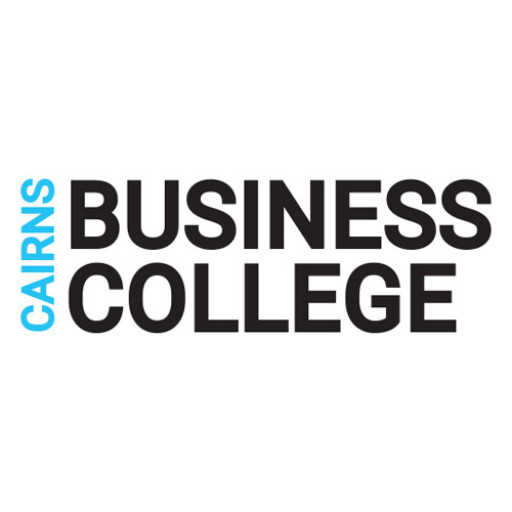The Certificate III in Hospitality at Box Hill Institute is a comprehensive qualification designed to equip students with the essential skills and knowledge necessary to excel in the dynamic hospitality industry. This program provides foundational training in various aspects of hospitality service, including food and beverage preparation, front desk operations, customer service, and responsible service of alcohol. Students will learn through a combination of classroom theory and practical hands-on experience, enabling them to confidently perform in diverse hospitality settings such as cafes, restaurants, hotels, and event venues. The curriculum covers key areas such as communication skills, teamwork, problem-solving, and workplace safety, ensuring graduates are well-prepared to meet industry demands. Participants will also develop a strong understanding of food hygiene practices, cultural awareness, and professional etiquette, which are critical for delivering exceptional service to a diverse clientele. The program is suitable for individuals seeking to start their career in hospitality, as well as those wishing to upgrade their skills for advancement within the industry. Upon successful completion, graduates gain nationally recognized certification and may pursue further studies in hospitality management or specialized areas like barista training, event management, or culinary arts. The Certificate III in Hospitality at Box Hill Institute is an excellent pathway into the hospitality sector, offering a solid foundation combined with practical experience to set students on a successful career trajectory in Australia's vibrant hospitality industry.
The Hospitality program at Box Hill Institute provides students with comprehensive training and practical skills essential for a successful career in the dynamic hospitality industry. Designed to equip learners with a solid foundation in hospitality operations, the program covers a wide range of topics including food and beverage service, front office operations, accounting, customer service, and hospitality management. Students will gain hands-on experience through simulated workplace environments and internships, allowing them to develop their skills in real-world settings. The curriculum emphasizes practical training, ensuring graduates are well-prepared to meet industry standards and meet the expectations of employers in hotels, restaurants, cafes, and other hospitality venues. Throughout the course, students will learn about nutrition, safety standards, and sustainable practices, fostering a responsible approach to hospitality. The program also includes modules on communication, teamwork, and leadership, which are vital skills for progressing in the hospitality industry. Students will have opportunities to specialize in areas such as kitchen operations, bar service, or event management, depending on their career aspirations. The program is suitable for entry-level students as well as those seeking to upgrade their skills and advance their careers. Upon completion, graduates will be equipped with the knowledge and practical skills needed to secure employment or pursue further study in hospitality management. The institute’s experienced faculty members are dedicated to providing quality education and support, ensuring students achieve their professional goals. By choosing this program, students will join a vibrant industry with numerous opportunities for growth and development in a global sector that values service excellence and innovation.
The Certificate IV in Commercial Cookery at Box Hill Institute is designed to equip students with the fundamental skills and knowledge required for a career in professional cooking within the hospitality industry. The program emphasizes practical culinary techniques, food safety standards, and menu planning, preparing graduates for employment as chefs or cooks in a variety of hospitality settings. Throughout the course, students will engage in hands-on training in commercial kitchens, mastering skills such as food preparation, cooking methods, presentation, and kitchen safety. The curriculum covers a broad range of topics, including nutrition, dietary requirements, and the use of contemporary cooking equipment. Additionally, students will develop their understanding of workplace communication, teamwork, and customer service, which are essential for effective operation in dynamic hospitality environments. To successfully complete the program, students are typically required to undertake both theoretical coursework and practical assessments, including the preparation of various dishes, hygiene audits, and simulated workplace scenarios. The program may also include industry placements to give students real-world experience and exposure to professional kitchen operations. Entry requirements may include completion of certain prerequisites or relevant prior learning, along with English language proficiency for international students. Upon graduation, students are equipped for roles such as line cook, kitchen supervisor, or culinary apprentice, with pathways available for further studies in hospitality or related fields. The program aligns with industry standards and prepares students to meet the challenges of a competitive and evolving culinary sector.
The financing options for the Hospitality programs at Box Hill Institute, TAFE VIC are designed to support students in achieving their educational goals while accommodating different financial circumstances. Students enrolled in these programs can access a variety of funding sources, including government subsidies, Commonwealth and State government funding schemes, as well as potential financial aid options. Eligibility for government funding such as VET Student Loans may be available for certain qualification levels, providing students with the opportunity to defer part of their tuition fees and repay them through income-based arrangements upon entering the workforce. Additionally, students may benefit from Victorian Government initiatives that subsidize TAFE courses, reducing the overall cost of training.
Private financing options are also available, including payment plans offered directly by the institute, allowing students to spread the cost of their tuition over manageable installments. For international students, different fee arrangements apply, and they are responsible for paying tuition fees upfront unless specific scholarships or financial assistance are granted. Scholarship opportunities may be available based on academic excellence, financial need, or industry partnership programs that support students pursuing careers in hospitality.
Students are encouraged to explore federal and state grants, employer sponsorships, and external scholarship programs to offset costs associated with tuition, textbooks, and other study-related expenses. The institute also provides financial counseling services to help students plan their finances effectively and navigate available funding options. For those requiring additional financial support, there are also options for loans, bursaries, and external grants, often contingent upon individual eligibility.
Overall, the funding landscape for Hospitality students at Box Hill Institute is comprehensive, aiming to make training accessible and affordable. Students should consult the official institute website or speak with the admissions and student finances advisors to obtain the most accurate and up-to-date information regarding available financial aid, eligibility criteria, application procedures, and deadlines. It is important to stay informed about changes in government policies and funding schemes that may impact available support. By leveraging these diverse financing options, students can focus on their educational journey and develop their skills in hospitality without undue financial stress.
The Bachelor of Hospitality Management at Box Hill Institute, TAFE VIC is designed to provide students with comprehensive knowledge and practical skills necessary for a successful career in the dynamic hospitality industry. This program emphasizes active learning through industry placements, real-world projects, and interactive coursework, ensuring graduates are well-equipped to handle management roles within hotels, restaurants, event organizations, and other hospitality venues. The curriculum covers a wide range of topics, including hospitality operations, strategic management, financial planning, marketing, and leadership. Students will also explore current industry trends, sustainability practices, and innovative service delivery methods, preparing them to adapt to evolving market demands. The program is delivered through a combination of classroom theory, practical workshops, and on-the-job training, fostering both technical expertise and soft skills such as communication, teamwork, and problem-solving. Opportunities for networking with industry professionals are integrated into the course, providing valuable insights and potential employment pathways. Upon completion, graduates can pursue various career options such as hotel manager, food and beverage manager, event coordinator, or catering director. The institute maintains strong relationships with local and international hospitality businesses, offering students internship placements and employment opportunities. This program aims to develop confident, industry-ready professionals who can lead and innovate within the hospitality sector, contributing positively to Australia's vibrant tourism and hospitality industry.










